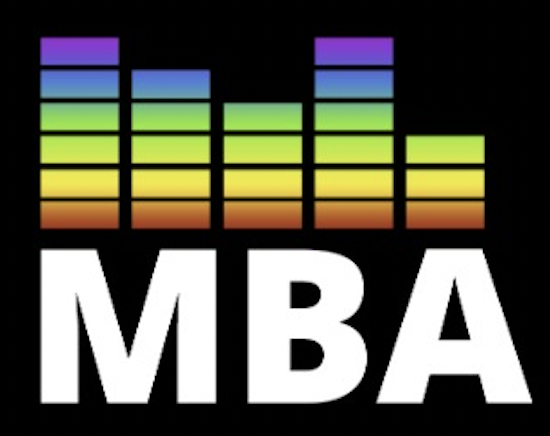HZsound Luna – Review
When I first got my hands on the HZSound Luna, I was intrigued by the idea of a planar IEM at its price point. Given its sleek design and promises of balanced sound, I was excited to see how it would perform across different genres. As someone who appreciates a mix of technical accuracy and musicality, I had high expectations—especially since it’s positioned as a potential successor to the beloved Heart Mirror. After spending a good amount of time with it, here’s how it fared in my tests.
Unboxing & Initial Impressions
When I first plugged in the HZsound Luna with a 3.5mm connection, I was greeted with an unexpectedly wide soundstage. The clarity was impressive, and there was a certain sweetness in the coherence of the playback. Listening to Toto – Africa, it’s rare to hear it sound this full and engaging. Yet, despite the Luna’s planar magnetic driver, it didn’t quite reach the level of detail and finesse of the Heart Mirror (HM).




I expected the Luna, being a planar, to outperform the Heart Mirror’s dynamic driver, especially in delicacy and finesse. However, it delivered a sound that’s more neutral-bassy with a generally darker tone. The overall playback felt organic, with sufficient treble presence, though the highs didn’t quite shine through as much as I had hoped. They were present but didn’t fully grab the spotlight.
Sound Technical Details
• Driver: 13.3mm planar magnetic with dual voice coils
• Impedance: 28Ω
• Sensitivity: 102±3dB
• Frequency Range: 10Hz – 40kHz

The Luna leans toward a darker tonality where extensions fade smoothly into the background, almost as if they whisper “we’re still here” as they dissipate. When it comes to micro-details, it falls somewhere between “okay” and “good.” Frankly, given its lineage as a successor to the Heart Mirror legend, I expected a bit more. It almost borders on lackluster, and I suspect my HiBy R4 might not be giving it enough juice. I plan to revisit it with more power to see if it unlocks its full potential.
Playback Experience
When it came to string arrangements, the Luna played with a majestic sense of presence. I could feel that grandeur in the air. Switching over to symphonic metal, it captured that passion effortlessly. As the church organ faded and metal guitars kicked in, the energy was unmistakably there, yet with excellent control—no bass bloat here.
Testing with Tool’s ‘Sober’, the bass guitar in the intro wasn’t overly aggressive or harsh. Instead, it carried a subtle vibrance that didn’t weigh down the track but still conveyed its depth. It brought back memories of other IEMs that nailed that intro, leaving a lasting impression.
Switching gears to electronic music, the Luna really came into its own. The bass was impressive, with a palpable rhythm that I could feel. It even handled one of my go-to test tracks, INFERNO, with surprising authority. It’s not often I find a planar that grooves this well. Maybe at Letshuoer S08. Cranking up the volume and giving it more power completely transformed the HZsound Luna into a versatile all-rounder.

Sound Characteristics
The Luna’s upper mids and treble might not immediately catch your attention, but the overall playback leans towards a musical yet slightly analytical character. While the Luna doesn’t achieve the highest technical benchmarks, it strikes a delicate balance. Resolution-wise, I’d rate it around B+, and transparency hovers in the same range.

Soundstage and Imaging
In terms of 3D imaging, it’s hard to call it a standout performer. The soundstage is wide enough, but it doesn’t quite achieve that holographic effect some higher-end planars can. However, for an all-rounder, it’s versatile enough to handle multiple genres with ease.
• Bass: It’s tight and controlled with no bloat, especially noticeable in genres like metal and electronic. HZ Sound Luna’s rhythm is felt without overpowering the mids.
• Midrange: Smooth and coherent, though it sometimes lacks that extra bite. Instruments don’t feel overly heavy or feather-light—they’re comfortably balanced.
• Treble: While present, it’s not the star of the show. There’s enough sparkle to keep things engaging, but it doesn’t dominate.

Pros
• Balanced sound signature with a neutral-bassy tilt, great for various genres.
• Solid build quality with a premium CNC-machined aluminum body.
• Comfortable fit with lightweight design for extended listening sessions.
• Impressive bass control with tight, punchy response, especially in electronic and rock tracks.
• Handles string arrangements and symphonic metal with a majestic and energetic presentation.
• Versatile all-rounder once given enough power to shine.
Cons
• Requires moderate driving power; lower-powered sources might not bring out its full potential.
• Upper treble lacks presence, making it less airy and detailed than some competitors.
• Micro-detail retrieval is average, especially compared to its predecessor, the Heart Mirror.
• Slightly dark tonality that may not appeal to those who prefer brighter, more detailed treble.
• Imaging and 3D soundstage are good but not exceptional for a planar IEM.
HZsound Luna Review Conclusions
To sum it up, the HZsound Luna surprised me with its versatility and balanced sound signature, especially when given a bit more power. It’s not the most technically proficient IEM I’ve heard, nor the most musical, but it has its own charm. It strikes a balance between musicality and analysis, reminiscent of the playback style of the S08 series. For those looking for a planar that can handle everything from classical to electronic, the Luna is a solid contender—just make sure to pair it with a source that has enough power to let it shine.







